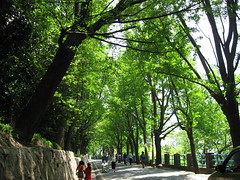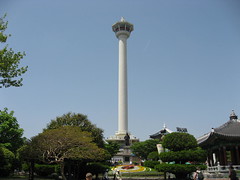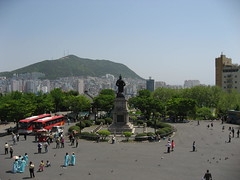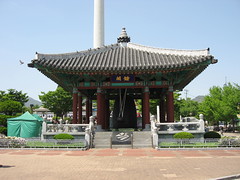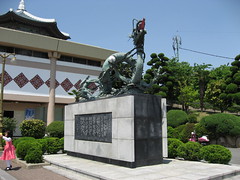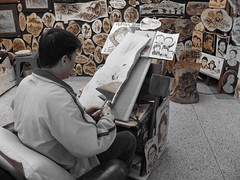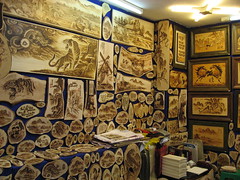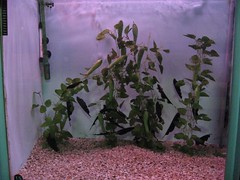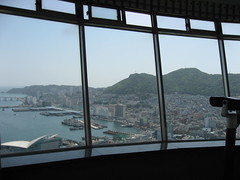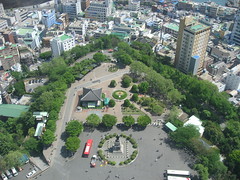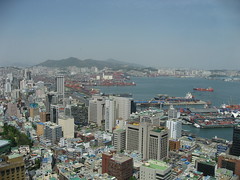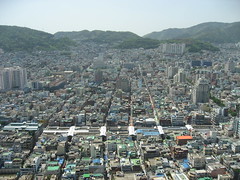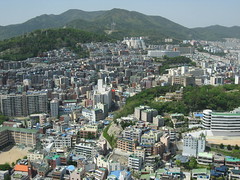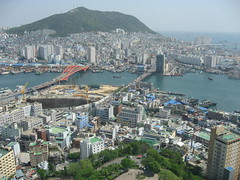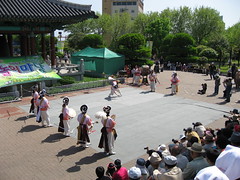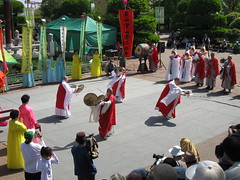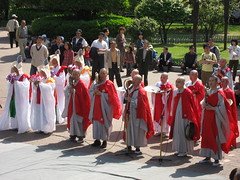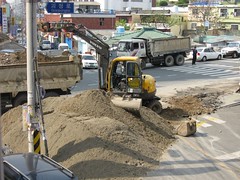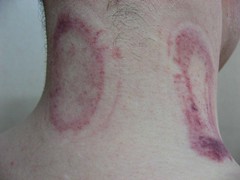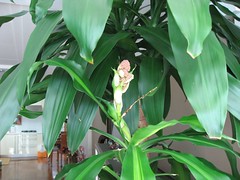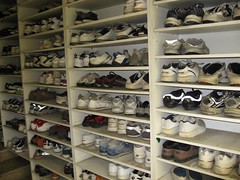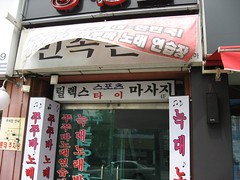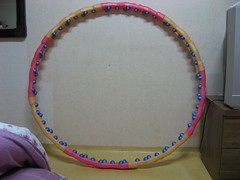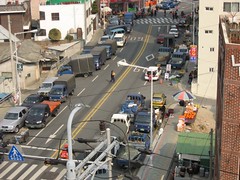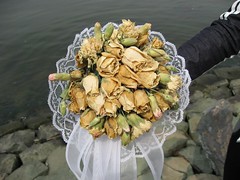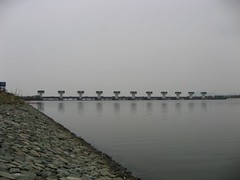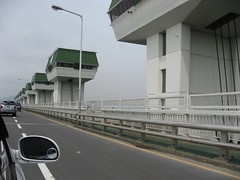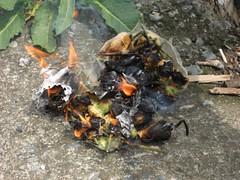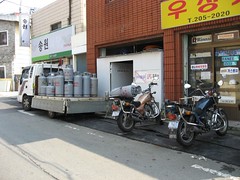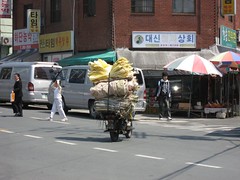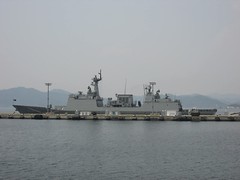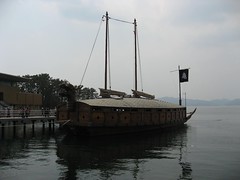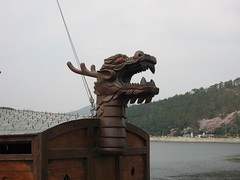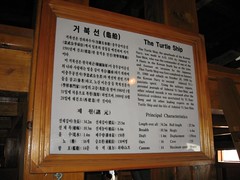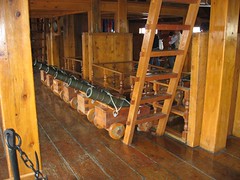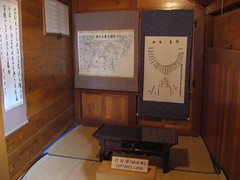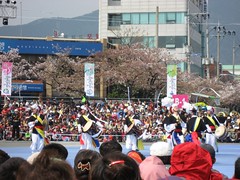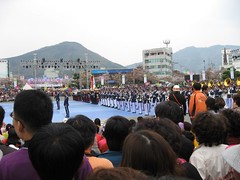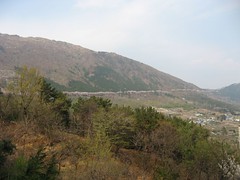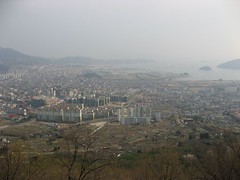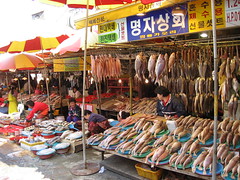
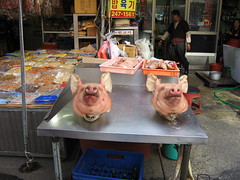
As we approached the market building, we discovered a talent contest going on behind it, by the edge of the docks. It didn't seem a very natural place for such an event, and the scene was made even more surreal by the rows of predominantly middle-aged audience surrounded by the heaviest police presence I've seen here. It didn't seem likely that the audience would storm the stage but who knows? Some serious police stares discouraged me from taking photos.
Inside the market building, where we were greeted by an even more overpowering smell of seafood, I was free to take some shots and a couple of videos with my camera, but I would come to wish I wasn't. Korean Mother walked down the isles, offering some displays of mild interest to hook the vendors, after which she would reel them in with a couple of questions before finally enquiring about the price. By this time the vendors were already catching fish from their tanks with nets, but if the price wasn't good they would be thrown back as quickly as Korean Mother threw back the vendors.
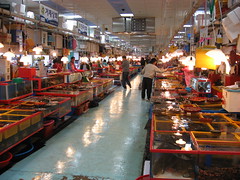
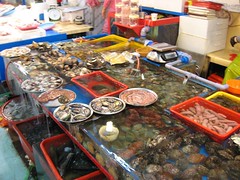
We have a fish market back home, but apart from the flies everything inside is dead, so I was admittedly intrigued by the process of shopping with live fish. By the time Korean Mother found a vendor with a fish at the right price then, I was ready to video the scene, but my inexperience meant that as the fish captured struggled to jump out of stall-holders net, a shower of water hit me even though I'd cautiously positioned myself about six four away.
I'd seen enough in the market by this time to know what was coming next, and sure enough in very short order the fish - still wriggling, was secured on a chopping board and the head was neatly sliced off and, with blood still running out, was thrown into a very visible bin at the end of the counter where the discarded remains of dozens of earlier victims lay festering. The vendor expertly sliced the body and it was probably a little over a minute later that the remains of the fish were nicely wrapped for Korean Mother to take home for the sum of 15,000 won (about £8). When three people can eat out comfortably in a diner for the same price, this is quite expensive by local standards.
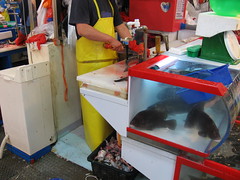
I was however, unable to fully concentrate on the speed and expertise of the fish vendor's work, because as I stood there my attention gradually fixated on the bin, and the recently deposited fish head, the gills of which had begun expanding in an out rapidly in an apparent last desperate effort to breathe. As I watched it, I saw other fish parts still moving, but while I suppose I can put that down to muscle movements, I wasn't so sure about the head. I decided not to take a video, because there are some things I really don't want to think about any more than I have to, but on the other hand, this is the reality of life in Busan.
We set off for home and Korean Mother made for quite a sight walking at some pace through the subway - and occasionally breaking into a jog - in order to get back and eat her fresh fish as quickly as possible. Like many Asian countries, freshness is of course, very much prized in Korea, and Busan people do like their raw fish, sushi or 'chobab' (초밥) as it is called.
Today as we were walking down one of the local side-streets and we noticed a large fish, maybe 60cm long, had jumped from out of its tub, away from about ten companions who were crammed inside, and was wriggling around with decreasing strength on the road. We called in to the ajumma (아줌마 - middle-aged woman) inside the store to tell her, and she gave the fish an indifferent look before carrying on with what she was doing. As we walked away I couldn't help but think that all things considered, perhaps it was better to die that way than decapitated in a bin full of fish parts.
